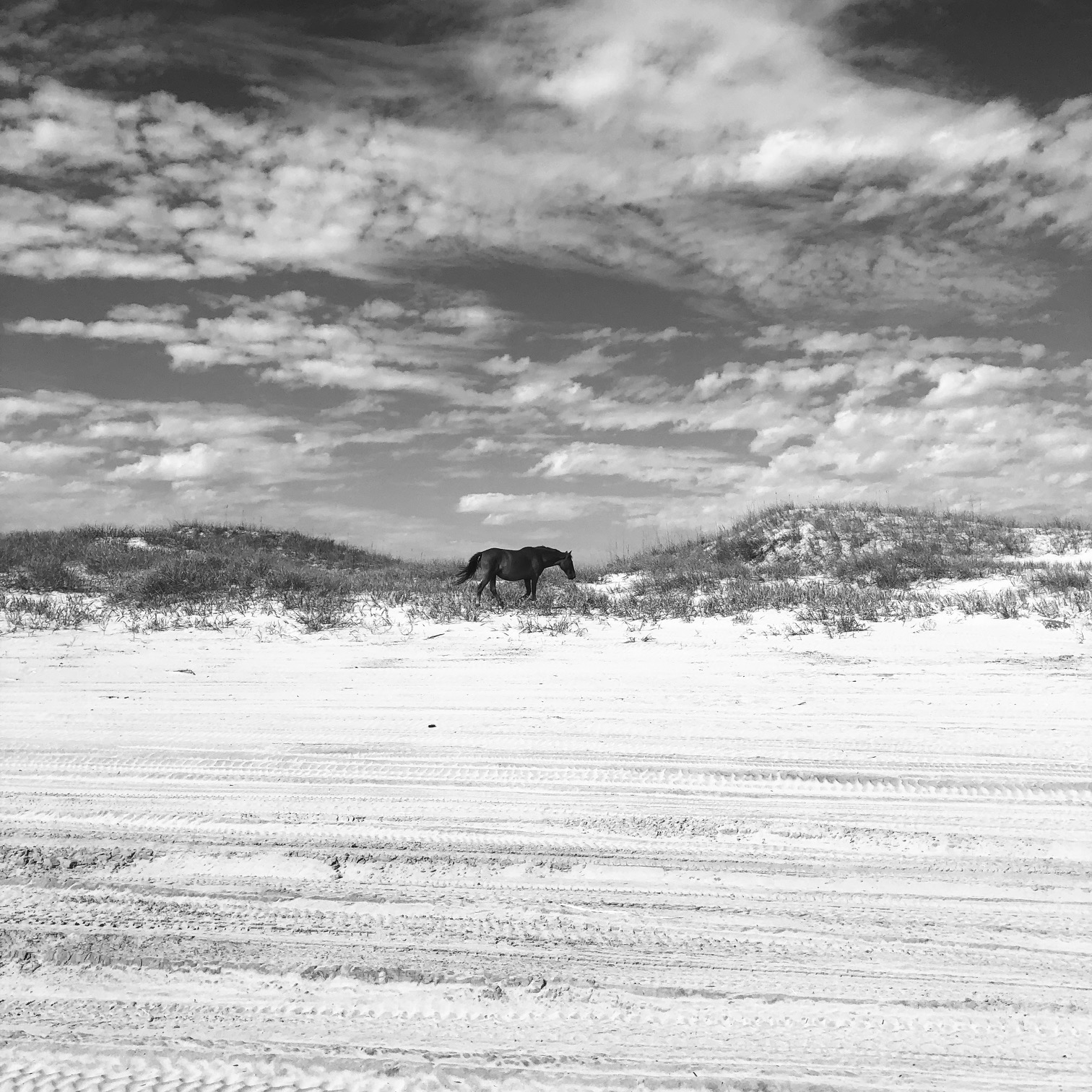Tucked into the unspoiled beauty of North Carolina’s Outer Banks, Roanoke Island is steeped in history. In 1587, it became the first English settlement in America. Within three years, the settlers had vanished without a trace. The only thing the Lost Colony left behind was the word “Croatoan” etched into a post. These days it’s a vacation hotspot with paradise beaches and dramatic sand dunes. Sure, most people come here for the beachfront retreats, but I opted for the more tranquil Cypress Moon Inn on the shores of Albemarle Sound. Authenticity is a term that gets bandied around a lot these days, but this place is the real deal, located in one of the few remaining maritime forests in the world. It had an untamed, jungle-like quality which I loved.
Taking a dip from the Inn’s dock, I chose the water noodles over a paddleboard or canoe, which made for a pleasantly refreshing float. Drifting in the cooling water was like taking an aquatic safari through a lush paradise. Floating in between forest, sea and sky, I got a unique glimpse of the spirit and soul of this otherworldly place, with its ancient coastal rhythms. Submerged in the primordial waters, brimming with frogs and dragonflies, I felt connected to a primal energy. My dream state was soon disrupted when I remembered that alligators, water moccasins (cotton mouth snakes) and sharks could be lurking; should I be worried? “I’ve been swimming here all my life, and so far so good,” said North Carolina native Linda, one half of the husband and wife team that runs the Cypress Moon.
The Outer Banks is a 200-mile-long string of barrier islands that support a diverse ecosystem. Visitors are strongly encouraged to admire but not feed the wild horses of Corolla wandering near the beaches of Currituck. The story goes that these magnificent Spanish mustangs are descendants of shipwrecked horses from hundreds of years ago. With Dorian looming, the horses will gather under sturdy oak trees to shelter from the storm. Currituck comes from the Native American word carotank or “land of the wild goose.” The area remains synonymous with waterfowl. Situated on the Atlantic Flyway, Currituck Sound is an ideal stopover for migrating ducks, geese and swans. With sea-level rise and increasingly severe storms, North Carolina’s coastline is under threat. Long may this little slice of heaven remain not only a vacation wonderland, but also a habitat for vulnerable wildlife.
